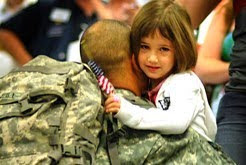The marriage of Chelsea Clinton and Marc Mezvinsky generated speculation about how this couple's religious differences would sort themselves out:
How will they raise their children?
Will she convert?
Will he keep Kosher?
And, of course: Will they have a Christmas tree?
The newly married couple has been spotted in Namibia on a safari. But soon enough, the honeymoon will be over. Since I have a bit of experience regarding interfaith marriage, I thought I’d offer some unsolicited advice.
Dear Chelsea and Mark,
David and I have been married for 22 years. While the religious details of our wedding are a bit different than yours -- I converted and we had a Conservative Jewish wedding -- we have faced many of the joys struggles of an interfaith marriage. So, I thought it might be helpful to share what we have learned as the two of you begin your new life together.
-- Don't ever EXPECT that your spouse will change their values or their belief system.
While an individual’s religious beliefs can evolve (as mine did), that change can only come from within. Even then, it’s really hard. I sailed through my conversion process that consisted of “10 Easy Lessons to Becoming Jewish.” Then I spent the next 10 years figuring out (and struggling, at times) how to embrace a new faith while honoring and respecting my past.
Mark, I was thrilled to see that you signed a Ketubah, stomped on a crystal glass, and danced the hora on your wedding day. Chelsea, I hope that you, too, incorporated equally meaningful symbolic moments into your day. To be honest, I was a little worried that they weren’t as evident in all the pictures that we saw. Remember, each of you has entered your marriage with over thirty years of traditions-—family traditions, religious traditions, cultural traditions. They make you who you are. Getting married is an opportunity to share them…not abandon them.
-- Decide what religious beliefs and traditions will guide the upbringing of your children, and, figure it out well before they’re born.
We got this one right from the beginning. In our case, it was easy; the kids would be raised Jewish. But, in 1994, during a moment of inconsistency, I talked David into letting me decorate the house with garland during the “winter” holiday. I rushed off with Arielle to Michael’s Crafts, and while we were in the checkout lane, she said "Mommy, why are you buying that? We don't celebrate Christmas." My 5 year old's reminder made it easy to leave the store empty-handed. Do your kids a favor -- don't confuse them. Children look for unity in the messages that they get from both parents.
-- Intrafaith differences are just as important to address as interfaith differences.
David, the grandson of an Orthodox rabbi, grew up in a traditional Kosher home. Fasting on Yom Kippur really meant eating absolutely nothing! I, on the other hand, was raised in a home where fasting for Easter simply meant not eating meat on Good Friday. We entered our relationship with very different expectations of our levels of observance, and it took several holiday cycles to find some common ground. Here’s the best advice I have on this issue: compromise.
Its easy to think that I was the one who compromised most in the relationship. I thought so too, for twenty years, until June 2008 when Fay, David's mother, passed away unexpectedly. I saw my husband fully immerse himself in the Jewish Orthodox funeral traditions -- sitting shiva, remaining unshaven, wearing a torn shirt and tie for a week and committing to saying Kaddish for a year. I realized that at his core, David is highly observant because he finds comfort in the structure of organized religion. But, he had quietly and willingly given that up and, on the surface at least, he settled into the looser traditions of Reform Judaism so that we could live our life together.
-- As your children mature and recognize that you came from different backgrounds, be prepared for questions that challenge and explore your deepest held assumptions beliefs.
Our girls attended the funerals of 2 grandparents in one year. Fay's had a closed casket. My father's Greek Orthodox funeral had an open casket accompanied by wailing women in black veils. Why the difference? Which approach offers a greater sense of closure? What would the girls each prefer when they die? Can they be Jewish and still have an open casket? Arielle has made the decision, at the age of 20, to document a specific, customized interfaith approach to her own future funeral so that it can be exactly how she wants. These conversations aren't for the faint-hearted.
Chelsea and Mark, you are both highly intelligent people and clearly thrive on intellectual and spiritual stimulation. If you are open and accepting, your interfaith marriage can be an ongoing journey that is just as enlightening as it is challenging.
Mazel Tov,
"Συγχαρητήρια για τον γάμο σας"
Archelle (and David)
For more information, visit Army Well-Being: Your Relationships.
















1 comments:
Many thanks to Archelle (and David!) for sharing their story here. Many military couples also learn to incorporate different faiths into their relationships, and this advice is appreciated!
Post a Comment